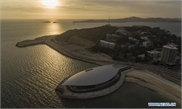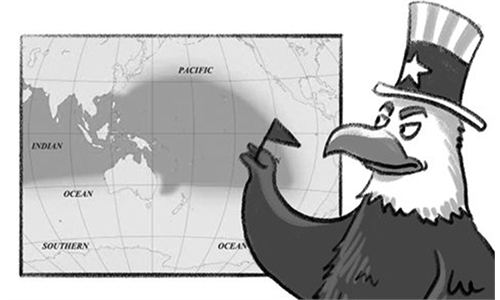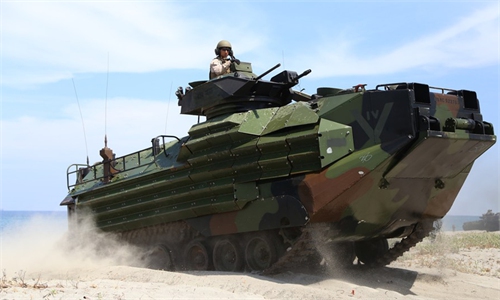
Kurt Campbell Photo: AFP
The US has upped the chance of the emergence of a "strategic surprise" in the Asia-Pacific region in 2022 by aiding Australia in building a fleet of nuclear-powered submarines under the so-called AUKUS security pact and constantly making provocations to test China's red line on the Taiwan question. But when Kurt Campbell, White House coordinator for Indo-Pacific affairs on the National Security Council, talked about a possible "strategic surprise" on Monday at the Washington-based Center for Strategic and International Studies, he said the Pacific may well be the part of the world most likely to see a "strategic surprise," in comments apparently referring to possible Chinese ambitions to establish Pacific island bases, according to Reuters.Chinese scholars disagreed with Campbell's prediction. Chen Hong, professor and executive director of the Asia-Pacific Studies Centre at East China Normal University, believes a "strategic surprise" could most likely occur in the Pacific because of the uncertainties caused by the deployment of the US Indo-Pacific Strategy.
"Australia as a pillar of the US Indo-Pacific Strategy is spending lavishly on building up military power taking China as a target, and may find trouble with or even attack China. This is the real 'surprise' that might happen," Chen said.
Chinese military expert Song Zhongping told the Global Times that if the US continues to be bent on interfering in the Taiwan question, a "surprise" may likely occur in the Taiwan Straits.
Campbell's prediction is not based on facts and rational judgments. It's aimed at hyping the so-called China threat, distorting and smearing the cooperation between China and the Pacific island countries. Campbell said he was most concerned about the "strategic surprise" - based on certain kinds of agreements or arrangements happening in the Pacific over the next year or two. He called Washington to work with "partners like Australia, like New Zealand, like Japan, like France, who have an interest in the Pacific, to step up our game across the board." It couldn't be clearer: making an issue of the alleged Chinese intention of building military bases overseas is a tactic Washington repeatedly uses to hype the "China threat," to create panic among its allies so as to unite them to jointly contain China in the Pacific region.
China pursues peaceful development and has no interest in military expansion and gunboat policies. So far, China only has a support base in Djibouti, which is meant for supply missions. But every once in a while, the US will create sensational hype over the construction of a Chinese military base overseas, accuse China of engaging in military expansion and slander China's normal overseas activities.
"China helps Pacific island countries build bridges, ports and other infrastructure. This is in line with the needs of their domestic economic development, and is a manifestation of the win-win nature of the [China-proposed] Belt and Road Initiative. The US is unwilling to offer such help, while not allowing China to do so. Where does the US put the needs and interests of the countries in need?" Song asked. Echoing Song's opinion, Chen said when developing ties with Pacific island countries, the US still has the inertia of imperial thinking.
The US' efforts to politicize and militarize China's economic activities in the Pacific region are aimed to justify its containment of China. The vast Pacific Ocean is large enough to embrace both China and the US, but the US has a petty and zero-sum mind. In order to consolidate its dominance and sphere of influence in the Pacific, it continues to strengthen efforts to contain China, and it doesn't care about turning the region into a "battlefield" of China-US competition and shows little concern in the interests of regional countries.
If there is really a "strategic surprise" in the Pacific, it must be caused by or related to the US. What the US cares is not regional peace and development. The US is forming anti-China circles, organizing intensive military exercises and beefing up its military presence in the region. The AUKUS deal has also greatly undermined the strategic stability of the region and shrouded the whole region in big uncertainties and instability. In such a context, even if China really sets up a support base or other kinds in the Pacific, it is not much of a "strategic surprise" at all.



